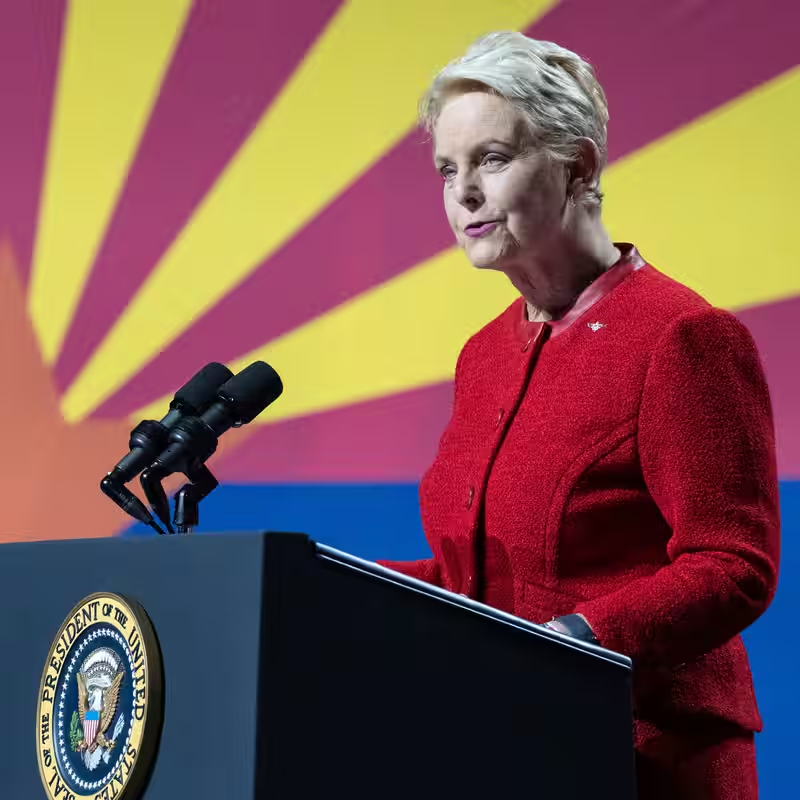In a development that has drawn global concern, Cindy McCain, executive director of the United Nations’ World Food Program (WFP), has temporarily stepped away from her duties following a mild stroke. The 71-year-old humanitarian leader is expected to make a full recovery and will spend the next four to six weeks recuperating with her family in Arizona.
McCain, who has led the world’s largest organization fighting hunger since 2023, confirmed the news in a statement released by the WFP on Thursday. “I want to thank the medical staff in Italy for the excellent treatment I received,” she said. “My recovery is progressing well thanks to their outstanding care.”
Cindy McCain’s Leadership at a Critical Time
McCain took the helm of the WFP during one of the most turbulent periods in global food security. Under her leadership, the agency has navigated severe funding cuts from the U.S. government, escalating conflicts in Gaza and Sudan, and the growing threat of climate-driven famines.
Her tenure has not been without controversy. In 2024, she became one of the first senior U.S.-aligned officials to publicly declare that Gaza was experiencing famine conditions—a stance that put her at odds with some Western diplomats but earned praise from humanitarian circles.
A History of Health Challenges
This is not McCain’s first stroke. In 2004, at age 49, she suffered a minor stroke caused by a ruptured blood vessel, possibly linked to high blood pressure. Her late husband, Senator John McCain, disclosed the incident at the time, emphasizing her swift recovery.
Now, two decades later, the WFP assures the public that her current condition is stable and that she remains engaged with the organization remotely during her recovery period.
Interim Leadership and Continuity
During McCain’s absence, Carl Skau, the WFP’s deputy executive director, will assume day-to-day leadership. Skau, a veteran of humanitarian operations with decades of field experience, is expected to maintain the agency’s urgent response efforts across 87 countries.
“The fight against hunger has never been more critical,” McCain added in her statement. “I look forward to being back in the field soon.”
Table: Key Facts About Cindy McCain and the World Food Program
| Category | Detail |
|---|---|
| Current Role | Executive Director, UN World Food Program (since 2023) |
| Previous Role | U.S. Ambassador to UN Agencies for Food and Agriculture |
| WFP Reach | 100+ million people in 87 countries |
| Nobel Peace Prize | WFP awarded in 2020 for pandemic-era hunger relief |
| Health Update | Mild stroke in October 2025; full recovery expected |
Global Hunger Crisis Deepens
McCain’s temporary departure comes as the WFP faces unprecedented challenges. Funding shortfalls—exacerbated by U.S. foreign aid cuts under recent administrations—have forced the agency to scale back operations in several regions, including Yemen, Afghanistan, and parts of sub-Saharan Africa.
In Gaza, where the WFP has been a lifeline for millions, McCain’s advocacy helped spotlight catastrophic food shortages. In August 2024, she condemned Israeli forces after WFP staff were fired upon near a checkpoint—an incident that temporarily halted aid deliveries.
A Legacy of Advocacy
Beyond her diplomatic roles, Cindy McCain has long championed humanitarian causes, from human trafficking prevention to maternal health. As the widow of Senator John McCain, she has used her platform to amplify voices often overlooked in global policy debates.
Her leadership at the WFP reflected that ethos—prioritizing on-the-ground realities over political convenience.
What’s Next?
While McCain focuses on recovery, the world watches anxiously. With famine looming in multiple regions and donor fatigue setting in, the WFP’s mission has never been more vital—or more vulnerable.
For now, the message from headquarters is clear: operations continue, leadership remains steady, and their director intends to return stronger than ever.




